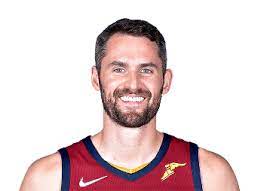“Mental health is an invisible thing, but it touches all of us at some point or another. It’s a part of life.” Kelvin Love
 Mental health can be one of the most challenging topics to discuss with someone.
Mental health can be one of the most challenging topics to discuss with someone.
One group of people who have the most challenging time talking about mental health is athletes.
Athletes seem to feel like they need to be ok and push their unresolved emotions and feelings to the side because that is not “how tough people act.”
Participating in sports is challenging for athletes dealing with mental health issues behind closed doors.
What is Mental Health in Sports?
Viewers view athletes as tough, invincible, untouchable people when most forget they are like everyone else.
Mental health in sports can surface in different forms.
Athletes can deal with a wide range of mental health problems. They can struggle with anxiety, depression, stress, body image, eating disorders, and burnout, to name a few.
Sports psychology for basketball is starting to shed light on the mental health crisis. Many athletes are now stepping forward with the mental health issues they are struggling with.
Keeping It Under Wraps
About twenty years ago, mental health was never discussed in public.
It was kept quiet if an athlete was dealing with personal mental health struggles because they could not have anything affecting their image.
The awareness that they are not alone and it is ok to not be ok is starting to help so many athletes overcome struggles they thought they could never overcome.
Many athletes are still silently struggling.
Athletes will sometimes refuse to seek help because they are afraid of how it will affect their image. Kevin Love, an NBA player, said before his first time seeing a therapist that therapy shows a sign of weakness in the world of basketball.
How To Help Athletes Move Forward
One of the best ways to help athletes is to educate oneself in the field of mental health.
It is important to understand the struggles they deal with daily to a certain degree. The mental strength it takes to juggle a very demanding career and live everyday life as a regular person can be emotionally draining.
Parents, coaches, friends, mentors, and professionals can look for signs of depression and anxiety in athletes. It is important to check on every player even if they do not show symptoms of depression or anxiety.
It is important that the athlete feels “normal” and strong, asking for help when needed. The people surrounding them need to normalize it for the players that they are not any less an athlete for needing help.
Some important resources for athletes include sport psychologists, mental game coaches, telehealth, and mental health hotlines.
If you are struggling with a mental health issue or need someone to talk to, Let’s Connect at drdcoffey.com/mentalhealth
